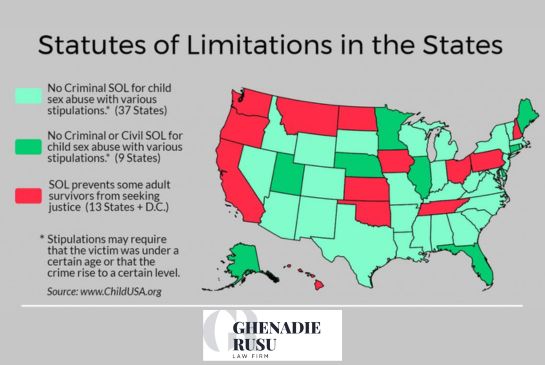In our modern world, people move across borders more than ever before. Immigration lawyers help guide them through complex laws. The lawyer advises people on the type of visa they need, whether it’s for work, study, or family reunification.
The Role of an Immigration Lawyer
Immigration laws are often hard to understand. Lawyers make sense of all the rules. They tell clients about their legal situation. Lawyers represent clients in court cases. They do legal research too. Immigration lawyers must deeply know the laws. This allows them to protect their clients’ rights.
Going to court is a key duty for immigration lawyers. They argue their client’s case before a judge. Judges listen to evidence and arguments. Having a strong grasp of laws helps lawyers present cases.
How to Become an Immigration Lawyer?
Here are the steps to become an immigration lawyer in 2024:
1. Earn Your Bachelor’s Degree
The journey begins with obtaining a bachelor’s degree. While there’s no specific requirement for your major, certain fields can better prepare you for the rigors of law school. Programs in political science, English, history, or international relations can be particularly beneficial, honing your critical thinking, analysis, and communication skills.
2. Ace the Law School Admission Test (LSAT)
The LSAT is a crucial step in your journey. This standardized test evaluates your readiness for law school, focusing on reading comprehension, analytical reasoning, and logical reasoning. Achieving a high LSAT score is pivotal in gaining admission to a reputable law school.
Read More: What are the Immigration Attorney Fees in New York City?
3. Obtain a Juris Doctor (JD) Degree
Once you’ve been accepted into law school, you will work toward earning a JD degree, which typically takes about three years of full-time study. During law school, take advantage of courses that specialize in immigration law to start building your expertise. Practical experiences such as internships or participation in law clinic opportunities dealing with immigration cases can be incredibly beneficial.
4. Pass the Bar Examination
Graduation from law school is followed by one of the most challenging steps: passing the bar exam. This exam varies from state to state but usually includes multiple-choice questions, essays, and performance tests that evaluate your knowledge of the law and your ability to apply it in practice. Passing the bar is a prerequisite to practice law in the United States.
5. Gain Practical Experience
Early career experiences are crucial for budding immigration lawyers. Look for opportunities in internships, clerkships, or legal volunteer work that focus on immigration law. Working with experienced immigration attorneys or volunteering for organizations that assist immigrants can provide hands-on experience that is invaluable for your professional development.
6. Choose Your Career Path
As you establish yourself in the field, consider the type of environment where you’d like to work. Immigration lawyers can find opportunities in private law firms, government agencies, or non-profit organizations. Some lawyers also choose to open their own practice.
7. Commit to Continuous Learning
Immigration law is dynamic, with frequent changes in laws and policies. Staying informed about the latest developments is essential. Continuing legal education courses, seminars, and conferences can keep your knowledge up to date and allow you to offer the best representation for your clients.
Check out what we can do at the Law Office of Ghenadie Rusu. We can help with your immigration needs. So, book your free consultation now!
You can also Explore Our Latest Published Guides on:
- What Does ‘Dismissed Without Prejudice‘ Mean?
- How Much Does it Cost to Get a Green Card? Green Card Fees
The Day-to-Day Life of an Immigration Lawyer
Immigration lawyers have a variety of career paths available to them upon acquiring a solid foundation in immigration law. Some join law firms, working closely with other attorneys and legal staff, while others may decide to venture into the public sector or non-profit organizations, aiding vulnerable individuals or groups.
The law career has a good pay scale. Government lawyers get more than non-government ones. Big law firms pay better than solo practices. The Department of Labor says lawyers earn $120,000 yearly on average. Federal lawyers make over $140,000 per year. State or local government lawyers earn $41,103 to $429,998, and the average is $92,675. Lawyers at large successful firms or corporations typically earn higher salaries.
Law Office of Ghenadie Rusu is Your Trusted Legal Partner
From filing applications to offering reassurances, clear explanations, and presenting defenses in legal proceedings, your immigration lawyer is there at every step of your journey.
Don’t go through immigration alone. Call (347) 907-1248 to meet with us. We’ll give you excellent legal help for immigration. Your rights, dreams, and future matter. We’ll fight for you.
Read Our Latest Guides on Immigration and Family Law:
- How to Apply for Special Immigrant Juvenile Status
- Common Law Marriage NYC: What You Need to Know in 2024
- What are the Immigration Attorney Fees in New York City?
- Do I Need A Lawyer For My Child Support Claim in New York?













